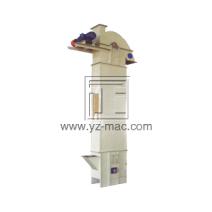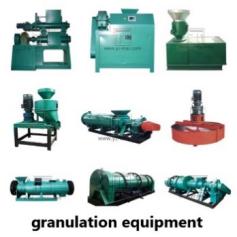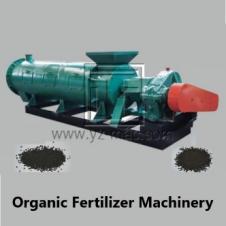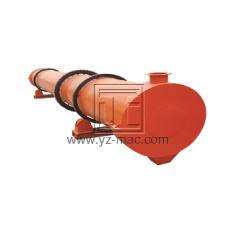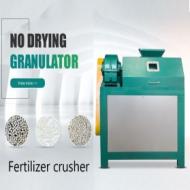Compost granulating machine
A compost granulating machine, also known as a compost pellet machine or compost granulator, is a specialized equipment used to transform compost into uniform granules or pellets. This machine is designed to enhance the handling, storage, and application of compost fertilizer, offering several benefits for organic waste management and agricultural practices.
Granulation of Compost:
Compost granulating machines convert loose compost into compact and uniform granules or pellets. This granulation process improves the physical properties of compost, making it easier to handle, store, and apply. Granules are less susceptible to moisture loss, dust formation, and nutrient leaching compared to loose compost.
Enhanced Nutrient Availability:
The granulation process improves the efficiency of nutrient release from compost. Granules provide a controlled-release mechanism, ensuring a steady and prolonged supply of nutrients to plants. This enhances nutrient availability and uptake, resulting in improved crop growth, yield, and overall plant health.
Customized Fertilizer Formulations:
Compost granulating machines allow for the customization of fertilizer formulations based on specific crop and soil requirements. They enable the blending of compost with additional nutrients, such as micronutrients or specific ratios of NPK (nitrogen, phosphorus, and potassium). Customized formulations ensure that the resulting compost granules provide targeted nutrition for different plants and soil conditions.
Improved Handling and Application:
Compost granules have better flowability, making them easier to handle and apply in agricultural settings. The uniform size and shape of granules enable precise application, ensuring even distribution and minimizing fertilizer wastage. Granules are well-suited for mechanical spreading equipment, reducing labor requirements and improving application efficiency.
Reduced Odor and Environmental Impact:
Granulating compost can help reduce unpleasant odors associated with loose compost. The granules encapsulate the organic matter, minimizing odor generation during storage and application. Additionally, by converting compost into granules, compost granulating machines contribute to sustainable waste management practices, reducing the release of greenhouse gases and minimizing environmental pollution.
Extended Shelf Life:
Compost granules have an extended shelf life compared to loose compost. The granulation process reduces moisture content and increases the density of the compost, which enhances its stability and reduces the risk of degradation or nutrient loss. This extended shelf life allows for longer storage periods without compromising the quality and effectiveness of the compost.
Versatility and Scalability:
Compost granulating machines come in various sizes and capacities, catering to different scales of compost production. Whether for small-scale farms, community composting, or large commercial operations, these machines offer versatility and scalability. They can be adjusted to meet the specific needs and volumes of organic waste and granule production.
Sustainable Fertilizer Management:
Using compost granules produced by these machines promotes sustainable fertilizer management practices. By utilizing compost as a granular fertilizer, farmers can reduce their reliance on synthetic fertilizers, thereby minimizing environmental pollution and the risk of nutrient runoff. Compost granules contribute to the recycling of organic waste and support organic and sustainable agriculture.
In conclusion, compost granulating machines play a crucial role in transforming compost into uniform and manageable granules or pellets. These machines enhance nutrient availability, improve handling and application, reduce odor and environmental impact, and offer customization options for fertilizer formulations. By utilizing compost granulating machines, agricultural operations can optimize their fertilizer management practices, improve crop productivity, and contribute to sustainable waste management.




